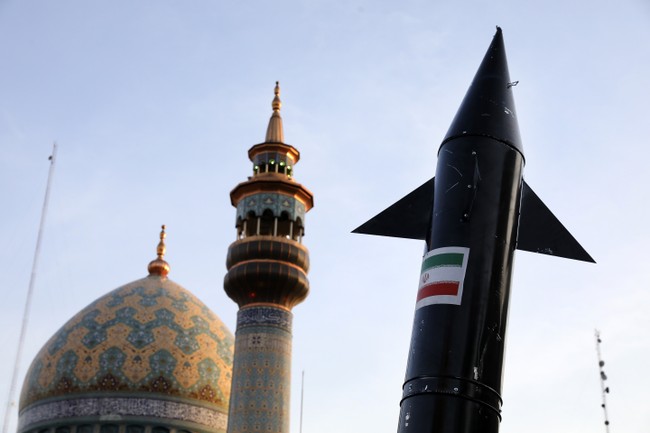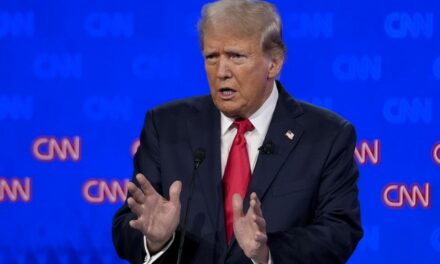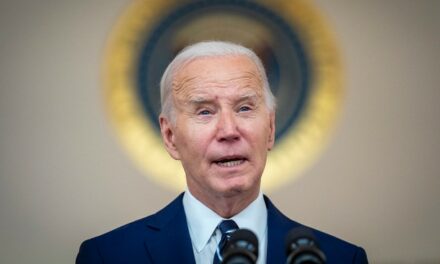We support our Publishers and Content Creators. You can view this story on their website by CLICKING HERE.

Earlier this spring, when the media mostly focused on the nationwide university campus protests over Gaza, many other important causes were overshadowed at the time.
Advertisement
One of these largely ignored gatherings was held by the Alliance Against Islamic Regime of Iran Apologists (AAIRIA) on April 26, an organization of Iranian-American anti-Ayatollah regime activists and exiles. About 70 members of AAIRA attended the protest outside the campus of Princeton University, over the school’s employment of a controversial figure from Tehran.
Seyed Hossein Mousavian, a former Iranian diplomat, was selected by Princeton as its Middle East security and nuclear policy specialist with the School of Public and International Affairs’ (SPIA) Program on Science and Global Security in 2016. Mousavian was first hired by the Ivy League university in 2009, after the Obama administration gave him a visa to enter the United States.
The protestors demanded that the university fire Mousavian for his alleged participation in targeted assassinations of at least 23 exiled political dissidents while he served as Iran’s ambassador to Germany in the 1990s. They posted an online petition calling for his removal from campus.
In 1997, the German government ordered Mousavian to leave the country after prosecutors directly linked him and other embassy employees to the murder of four Kurdish dissidents at a Berlin restaurant in 1992. The court’s verdict led most members of the European Union at the time to recall their ambassadors from Tehran.
Some of the protestors at the Princeton rally were family members of the victims killed by the former diplomat.
Advertisement
Before his arrival at Princeton, Mousavian served in other top-level positions upon returning to Iran from Germany. He became head of the foreign relations committee of Tehran’s National Security Council and later the chief spokesman for the Iranian nuclear negotiations team from 2003 to 2005. He remains an open supporter of Hamas and Hezbollah, two U.S. designated terrorist organizations, and he has been linked to Tehran’s attempts to assassinate the acclaimed novelist, Salman Rushdie.
Last September, Mousavian was invited to an event at Princeton held by the U.S. Strategic Command, which is in charge of the nation’s nuclear deterrent. There, he boldly bragged to his hosts about his government’s attempts to assassinate American officials, including Secretary of State Mike Pompeo.
“Mousavian’s troubling history of association with state-sponsored terrorism and human rights abuses demands decisive action from Princeton University’s administration,” Lawdan Bazargan, one of the leaders at AAIRA and a former political prisoner, told the NY Post in a March 2024 interview.
Bazargan and her colleagues, along with Oberlin students and alumni, successfully led an earlier 3-year campaign to remove Mousavian from the faculty of Oberlin College in the wake of the October 7 attacks. The coalition was able to get Ohio authorities to investigate Oberlin’s administration for antisemitism, while convincing students to boycott all classes taught by Mousavian.
Advertisement
“Then without any explanation, Oberlin put Mousavian on permanent leave in November, forced him to empty his office, and removed his name from their website, which is great,” Barzagan told PJ Media.
The controversial former diplomat attempted to defend himself to Princeton Alumni Weekly in November 2023 and denied being an agent of Iran during his 15 years at the university.
“Over the past two decades, as an academic, I’ve used every opportunity to propose peaceful solution to the Iranian nuclear crisis, and dialogue and engagement between Iran and the United States and with other countries such as Saudi Arabia,” said Mousavian, adding that he was no longer welcome in Iran following his fallout with the regime.
He claimed that he was not “able to go to Iran since June 2021 and I have not been engaged with any government including the government of Iran since the Iranian court convicted me in 2008” over allegedly spying for Western intelligence services.
A U.S. Congressional committee confirmed that Mousavian is actually free to return to Iran, but that his current relationship with Tehran remained “unclear.” The U.S. House of Representatives has been investigating why the former Iranian official was hired by the university, despite allegations of active participation in assassinations and his open support for terrorism.
A letter signed by 45 members of Congress to Princeton University President Christopher Eisgruber said, “Mousavian’s position on the faculty of Princeton for the past 15 years … raises significant concerns about the influence of foreign hostile regimes on American institutions.”
Advertisement
The letter asked if Eisgruber had ever consulted with Federal officials prior to hiring Mousavian and if he was aware of any communications between him and Iranian officials.
Congress also requested a list of classes that Mousavian taught at Princeton, his teaching salary, and whether he received any gifts or funding.
Related: American College Instructors Stabbed in China
“This man represents a regime that bans its own university students from continuing higher education,” Banafsheh Zand, an Iranian American journalist, told PJ Media.
“Now, given all the articles that have been published in major international media and blaring attention [that] Mr. Mousavian’s presence at Princeton has gotten over the past 15 years,” Zand added, “one would think Princeton’s senior officers and board of directors would come to their senses and ask him to leave. But they haven’t and do not seem to want to! The hypocrisy and corruption is blaring,” Zand added.

 Conservative
Conservative  Search
Search Trending
Trending Current News
Current News 







